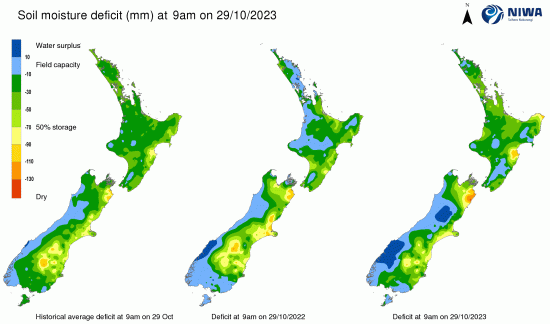Here’s our summary of key economic events over the weekend that affect New Zealand, with news away from the global geopolitical struggles, the economic news was only ‘average’ over the weekend.
In the week ahead, the key local data is our September labour market situation which is due Wednesday. More here.
Then on Thursday (NZT), the US Fed will review its monetary policy position, quickly followed on Saturday (NZT) by their non-farm payrolls report for October.
There will be a raft of PMI updates this week too all for October. And a big set of CPI updates are due this week, the most interesting will be from the EU, Korea, and Turkey. Japan is also due to review its monetary policy decision this week, as well as some second-tier countries like the UK and Brazil.
And we must not overlook we will be into the meat of the global earnings reporting season this week, which could also be influential.
But first, following Friday’s surprise surge in US economic growth, details released over the weekend confirmed the sharper than expected rise in consumer spending, up +0.7% in September from the prior month. Their core PCE is up +3.7% for the year. The appetite for both goods and services rose at about the same rate. Personal income rose at a consistent +0.3% from the prior month. Their savings rate eased back marginally.
But behind the consumption rise, there are signs that Americans are avoiding big-ticket items. Firms are reporting softer demand or a preference for less expensive alternatives. It seems the more you have to think about a purchase, the less likely you will make it.
So far, with nearly half of companies reporting, the Wall Street earnings season is developing into a good one, despite some high-profile misses. Of the 245 companies in the S&P 500 that have reported earnings so far, 77% of them beat earnings expectations.
In China, profits earned by their big industrial firms fell by -9.0% from a year earlier in the first nine months of 2023, amid weak demand at home and abroad and persisting margin pressures. The decrease followed a -11.7 % slump in the prior period, so the situation is easing. Things have turned up smartly in the past two months even if they still lag year-ago levels.
Australia has had the same difficulty we had, getting the EU to agree to a trade deal, despite their better hand. The sticking point was access for agricultural products. The top EU officials are Eastern European, with the EU trade chief from Latvia, and their Agriculture boss from Poland, so expectations should not have been high for the weekend ‘last ditch’ effort at a ministers meeting at the G7. Not unexpectedly those talks collapsed. Australia wants access for its farm products, the EU wants access to Australian minerals. But domestic EU politics couldn’t bridge the gap. Earlier in 2023 New Zealand took the crumbs of what the EU offered; the Aussies have not.
The UST 10yr yield is little-changed from this time Saturday, still at 4.85%. A week ago it was at 4.93%. Their key 2-10 yield curve is still less inverted, now by -17 bps. Their 1-5 curve is inverted by -64 bps and little-changed. Their 3 mth-10yr curve inversion is little-changed too at -56 bps. The Australian 10 year bond yield is now at 4.82% and down -2 bps from Saturday. The China 10 year bond rate is unchanged at 2.74%. The NZ Government 10 year bond rate is -1 bps lower at 5.55%. A week ago it was at 5.62%.
The price of gold will start today at US$2006/oz and up +US$20/oz from Saturday to start the week. A week ago we at US$1982/oz.
Oil prices have risen +50 USc today to be now at just under US$85/bbl in the US. The international Brent price has risen more, up +US$1.50/bbl now just under US$90/bbl. But these latest price levels are still lower than a week ago.
The Kiwi dollar starts today at 58.1 USc and marginally softer from Saturday. Against the Aussie we are holding at 91.8 AUc. Against the euro we are just on 55 euro cents. That all means our TWI-5 starts today unchanged at just under at 68.2. This time last week it was at 68.4, so again, little change.
The bitcoin price starts today at US$34,409 and up +2.2% from this time Saturday. Last week it made a notable +14% move up. Volatility over the past 24 hours has been low at just on +/- 0.9%.
Select chart tabs
The easiest place to stay up with event risk is by following our Economic Calendar here ».







